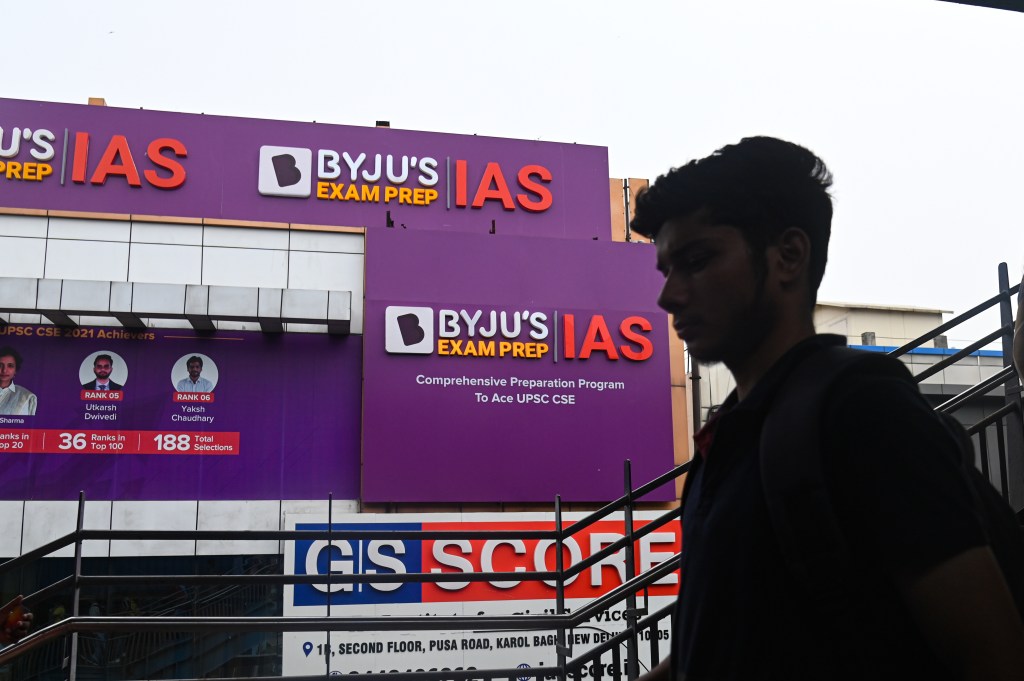

Byju’s says its recently launched $200 million rights issue has been fully subscribed, but the startup’s founder urged some of its major investors to participate amid a rift between the edtech group and some of its largest shareholders.
The Bengaluru-headquartered startup, valued at $22 billion in its last financing round in early 2022, announced last month that it would attempt to raise about $200 million through a rights issue. Byju’s cut the pre-money valuation ask in the rights issue to about $20 million to $25 million, TechCrunch earlier reported.
A group of investors, including Prosus and Peak XV, have yet to show any interest in participating in the rights issue, according to a person familiar with the matter. If they don’t participate in the rights issue, they risk losing nearly all their equity stake in Byju’s.
“Our rights issue is fully subscribed and my gratitude to my shareholders remains strong,” founder and chief executive Byju Raveendran wrote in a letter to shareholders Tuesday. “But my benchmark of success is the participation of all shareholders in the rights issue. We have built this company together and I want us all to participate in this renewed mission. Your initial investment laid the foundation for our journey and this rights issue will help preserve and build greater value for all shareholders.”
The Prosus-led group has called for an extraordinary general meeting in recent weeks to remove Raveendran and his family members from the edtech group. The investors don’t have the voting rights to enact any such change, Byju’s said in a statement earlier this month.
An EGM is scheduled for this Friday. Ahead of the EGM, Byju’s petitioned in the High Court of Karnataka against shareholders who seek his removal from the edtech group. The High Court granted a relief to Byju’s on Wednesday evening, ruling that any resolution passed on Friday will be invalid.
In the new letter to shareholders, Raveendran has sought to calm the situation with the investor group. He said the startup will appoint a third-party agency to monitor the fundraising in the rights issue and is committed to restructuring the board and appointing two non-executive directors.
“I understand that participating in this rights issue may seem like a Hobson’s choice. However, this is the only viable option in front of us today to prevent permanent value erosion,” he wrote.
Byju’s has been chasing new funding for nearly a year. The startup was in the final stages to raise about $1 billion last year, but the talks derailed after the auditor Deloitte and three key board members (representatives of Prosus, Peak XV and Chan Zuckerberg Initiative) abruptly quit the startup. Instead, Byju’s ended up raising less than $150 million in debt from Davidson Kempner and had to repay the investor the full committed amount after making a technical default in a separate $1.2 billion term loan B.
The events in the past eight months are a major reversal of fortunes at Byju’s, which has been mired in governance issues. The startup spent more than $2.5 billion in 2021 and 2022 to acquire nearly a dozen startups, according to Prosus.
Byju’s was preparing to go public in early 2022 through a SPAC deal that would have valued the company at up to $40 billion. However, Russia’s invasion of Ukraine in February 2022 sent markets downward, forcing Byju’s to put its IPO plans on hold, according to a source familiar with the matter. As market conditions worsened, so too did the business outlook for Byju’s.
Some of Byju’s investors have publicly aired their concerns about the startup in recent quarters, questioning some of its business decisions and demanding improved governance.
“Despite these headwinds we face as a company, there are tangible indicators of our enduring brand strength and future potential,” Raveendran wrote to the shareholders. “The traffic on our website and apps has shown remarkable growth in spite of reduced marketing spends in the recent past. This is a clear testament to the value our users find in our services and the faith they put in our content. The negativity has affected perception of the brand, but consumer belief continues to grow.”


